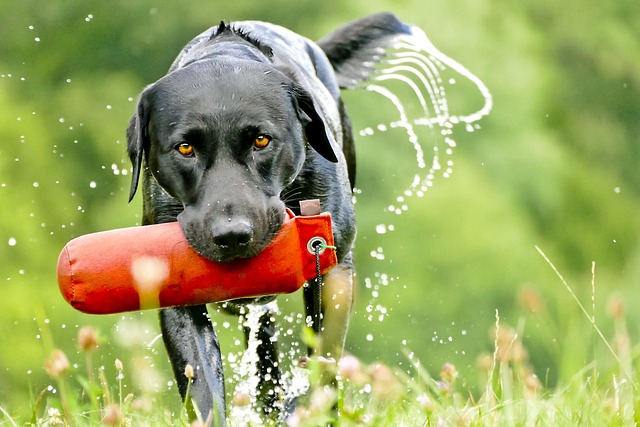
What is glaucoma in a dog?
You might notice your dog squinting more at mealtime or avoiding bright sunlight—these small changes could be early signs of a serious eye condition.
That moment your excited pup greets you with a yawn that smells like old garbage and wet socks – it’s enough to make anyone recoil. Desperate for a solution, many new dog owners reach for breath mints, human toothpaste, or dubious online remedies, but tackling truly horrible dog breath requires understanding its roots and using safe, effective strategies. That stench isn't just unpleasant; it's often a flashing warning light from your dog's mouth or body.
Persistent horrible breath overwhelmingly signals bacterial overgrowth fueled by plaque, tartar, gum disease (gingivitis or periodontitis), or even rotting teeth. These bacteria release volatile sulfur compounds – the same stinky chemicals found in rotten eggs. Less commonly, it can point to systemic issues like kidney problems, diabetes, or digestive disorders. While parsley or mint might mask the odor temporarily (like spraying air freshener in a dirty bathroom), they do nothing to address the underlying infection or decay causing the smell. Giving inappropriate items like human mints or xylitol-containing products can be dangerous or even toxic. The key is targeting the source safely.
Your first and most crucial step is always consult your veterinarian. Horrible breath warrants a professional exam to diagnose the cause – severe dental disease needs professional cleaning under anesthesia, while kidney issues require completely different treatment. After getting the all-clear or a treatment plan from your vet, focus on safe dog breath solutions for maintenance and odor control. For immediate freshness approved by your vet, consider enzymatic water additives (simply added to their bowl) or vet-prescribed dental gels applied to the gums. Look for VOHC-approved products like specific dental diets or chews proven to reduce plaque and odor-causing bacteria – these undergo rigorous testing for safety and efficacy. Start incorporating dog-safe dental wipes into your routine, gently rubbing teeth and gums. Diet matters too: some kibbles are specifically designed with texture to scrub teeth, and probiotics can sometimes help balance oral bacteria. Remember Jake from Seattle? His Bulldog, Bruno, had breath that "could clear a room." After a vet cleaning revealed advanced gum disease, Jake used a VOHC-approved water additive daily, switched to a dental kibble, and practiced gentle tooth wiping using positive reinforcement training (treats and praise for cooperation), making Bruno's kisses tolerable again within weeks.

Addressing horrible breath responsibly sits within a bigger picture of ethical and legal pet ownership. A dog suffering significant oral pain might become irritable or withdrawn – punishing them for growling or avoiding touch when in pain is unacceptable and worsens fear. Focus on compassionate care and positive reinforcement. Legally, ensure your dog's rabies vaccination is current – this is mandatory across the US and directly impacts public health. Always carry sturdy poop bags. Scooping immediately in shared spaces, whether it’s your cramped New York apartment building’s designated patch or a busy San Diego dog beach, isn’t just courteous; it’s legally required in most cities and prevents parasite spread. For apartment dwellers, managing bad breath is also about community comfort. That potent "doggy breath" can be overwhelming in shared hallways or elevators. Using vet-approved odor-neutralizing water additives or gels can be a considerate choice alongside responsible waste disposal. Respecting shared spaces and neighbors is integral to being a good dog owner.
While parsley sprigs or dental chews offer temporary relief, truly combating horrible dog breath requires vet intervention to address the root cause, followed by consistent, vet-approved maintenance like VOHC products, water additives, and gentle cleaning. By prioritizing professional diagnosis, using safe dog breath solutions, and upholding essential responsibilities like vaccination and prompt waste cleanup, you’re not just freshening breath – you’re safeguarding your dog’s health and ensuring they’re a welcome member of your community.

You might notice your dog squinting more at mealtime or avoiding bright sunlight—these small changes could be early signs of a serious eye condition.

Let’s set the scene: It’s a sweltering Phoenix afternoon—105°F outside—and you rushed your 2-year-old Lab mix, Cooper, on a quick walk to “get it over with.”

Let’s get real: You’re in your Miami apartment, watching your 3-year-old Corgi, Loki, struggle to climb the stairs to your second-floor unit.

Many dog owners brush off occasional scratching as just “dog behavior,” but persistent itching often signals something more—like a food allergy.

You might first notice your dog scratching more than usual—chewing at their paws until the fur looks thin, or rubbing their face against the couch nonstop.

Let’s be real: You’re standing in your Chicago apartment, watching your 3-year-old Beagle, Max, huff and puff just to climb onto the couch.